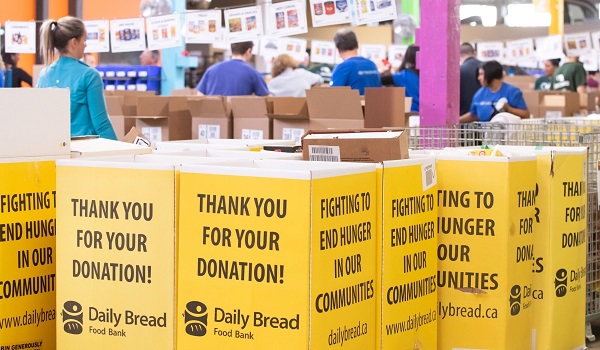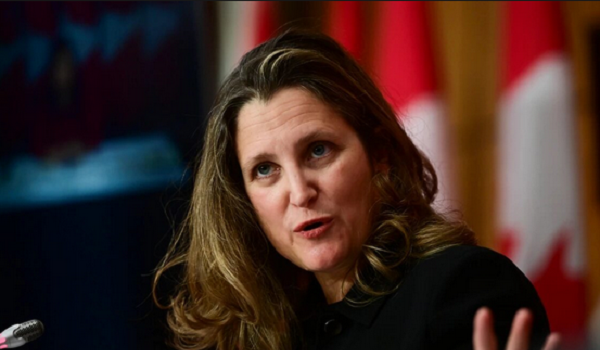Ottawa Food Bank issues an emergency amid record-breaking usage
The Ottawa Food Bank is issuing a “declaration of emergency” about the number of people turning to the organization to put food on the table, warning it will need to cut food distribution 20 to 50 per cent next year unless it receives “immediate and sustained assistance” from all levels of government.
“We’ve seen a dramatic increase in the number of people turning to a food bank here in Ottawa, almost 90 per cent in the last four years,” Rachael Wilson, CEO of the Ottawa Food Bank, said Friday.
“We continue to increase the amount of food and funds that we raise. We’re at a $30 million organization now, but it’s just not enough. And we recognize that we cannot keep pace with the demand that’s happening in the community.”
The Ottawa Hunger Report 2024, titled “The Ottawa Hunger Crisis,” shows there were 556,000 visits to the Ottawa Food Bank and its associated agencies in 2023, with visits up 90 per cent from 2019.
Wilson says the food bank continues to see a 10-15 per cent increase in visits month over month in 2024, including a record 50,000 visits in October.
“We’re just not able to have enough food for everyone. And we know that that means it’s going to have to be less food for more people,” Wilson says.
Newcomers and children and youth each accounted for a quarter of visits to the food bank last year, and there were 2.4 million meals were served by its food programs.
The Ottawa Food Bank says one in four households faced food insecurity in 2023, up from one in seven households in 2022.
“Severe food insecurity has nearly doubled since 2019, leaving many to skip meals entirely just to pay for rent or utilities,” the food bank says. “With a record-breaking 556,000 visits to food programs in 2023, this isn’t just a wake-up call—it’s a declaration of emergency.”
Thirty-seven per cent of users to the Ottawa Food Bank were children and youth under the age of 18, and 42 per cent of visitors were single adults.
“Newcomers to Canada who have been in the country for 10 years or less are increasingly vulnerable to food insecurity,” the Ottawa Hunger Report 2024 shows.
“In 2024, 25.9 per cent of food bank visitors in Ottawa were newcomers to Canada, up from 16.3 per cent in 2019. This includes refugees, international students, migrant workers, and recent immigrant families.”
The Ottawa Food Bank says the 50,000 visits in October set a record for the highest number of visits in a month in its 40-year history. Now, the food bank says it needs help from governments to meet the need.
“While we remain committed to serving the community, we face difficult choices,” Wilson said in a statement. “Record-breaking demand has forced us to prioritize, making trade-offs that no community should ever have to consider.”
The food bank receives 98 per cent of its funding through donations, while less than two per cent of the funding comes from governments.
“This disparity is simply untenable,” Wilson said. “We are calling on all levels of government to recognize food insecurity for what it is—a crisis—and to treat it with the urgency it demands.”
Approximately 40 per cent of community food banks have been forced to turn people away, according to the food bank. The Ottawa Food Bank says the $30 million budget is “not enough food and funds” to support the one in four households impacted by food insecurity.
“It’s critical for governments to take a look at the systemic issues impacting food insecurity and step up their actions now,” the food bank told CTV News Ottawa Friday afternoon. “In order to provide a sustainable and equitable supply of food across the city for the next year, we need to make cuts of 20 to 50 percent on our food distribution.”
Wilson admits it’s “devastating” that the Ottawa Food Bank will have to provide less food to its 98 agencies they work with, but it has no other choice.
“We know this will have a tremendous impact on the 98 agencies that we work with. And then, of course, the thousands of people who rely on a food bank are going to be walking away with less food,” Wilson said.
“We are greatly concerned about the health impacts. We’re concerned about people losing their homes. We know this will have an impact on our community.”
This article was first reported by CTV News













